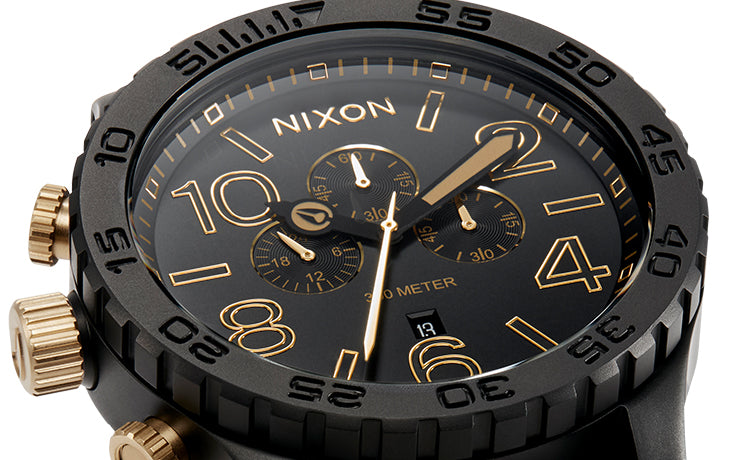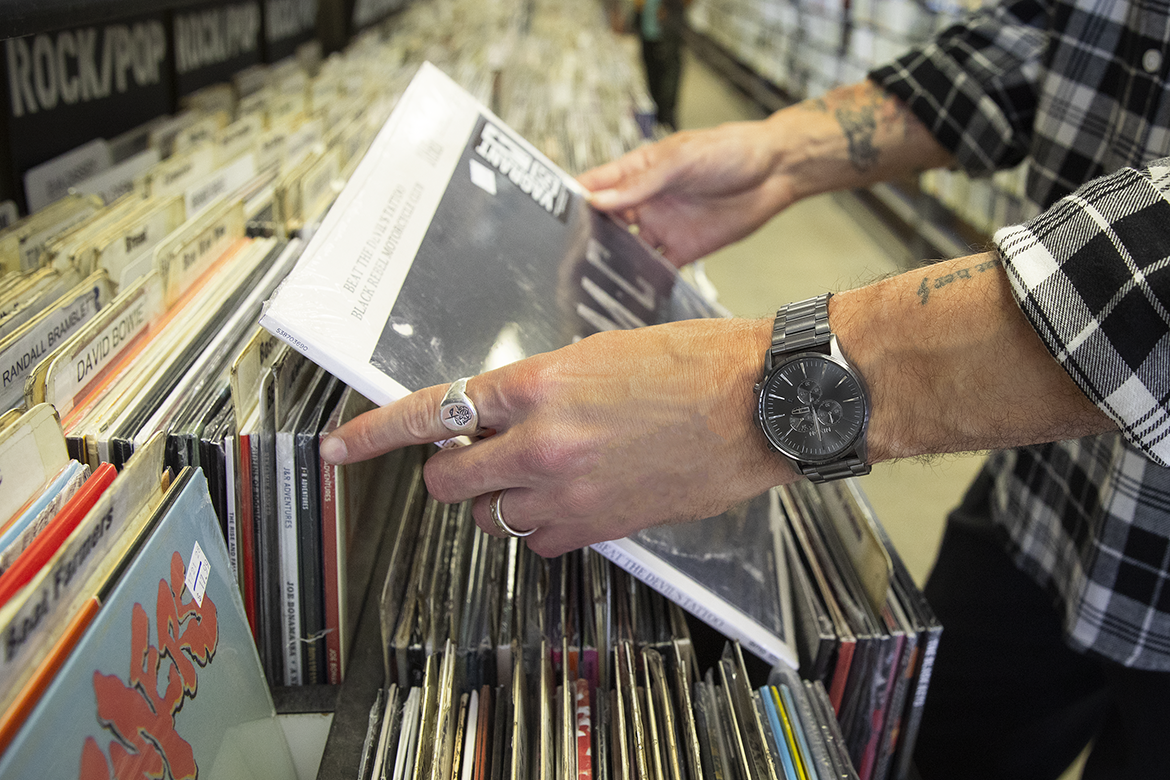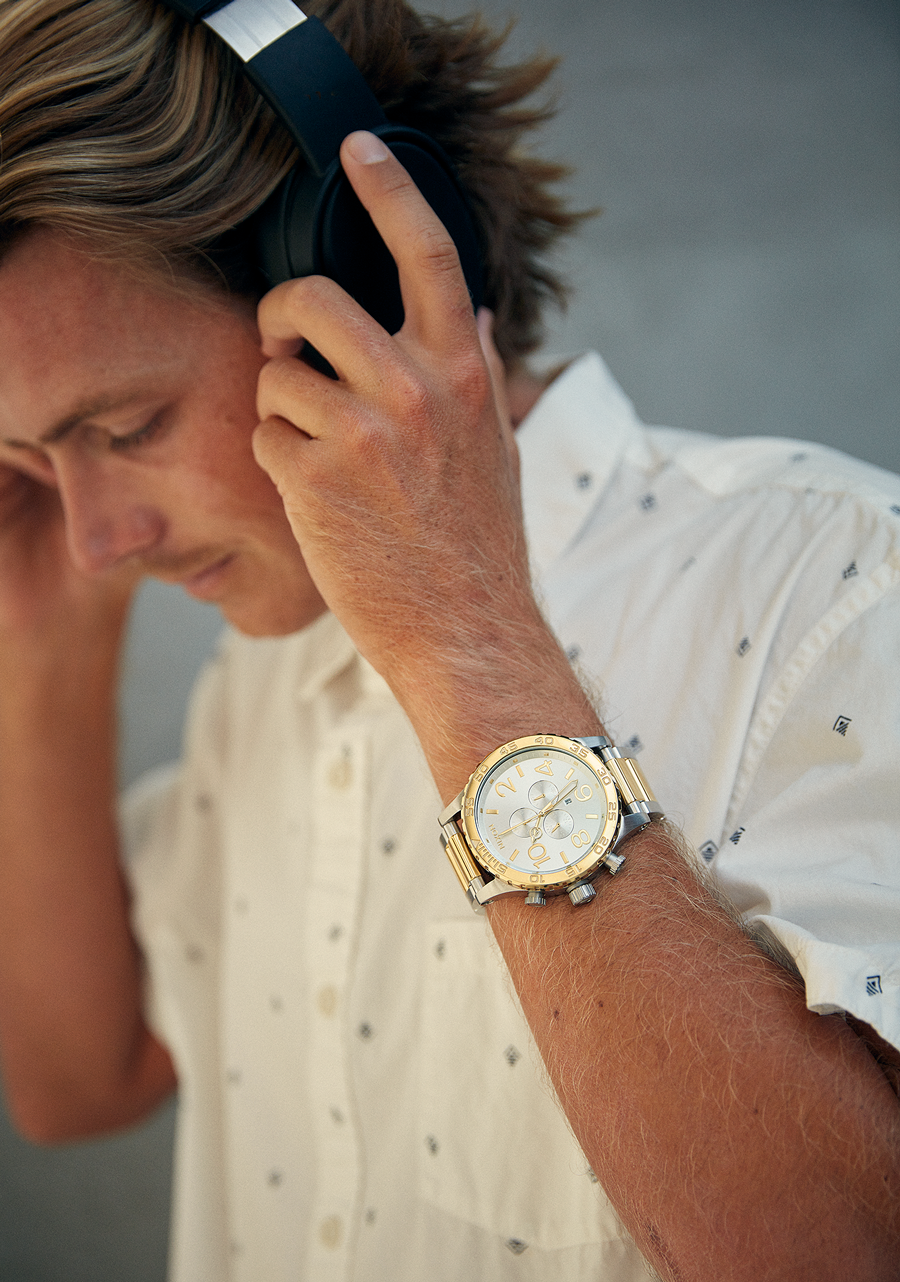Chronographs are the badasses of the watch world. They are instantly recognizable, scream sophistication, and add functionality to a watch — even if you never use it. But, if you’re unfamiliar with what a chronograph is and how to use one, we’re here to turn up the dials on your watch know-how.
So let’s first answer the question, “What is a chronograph watch?”

What is a Chronograph?
“Chronograph” literally translates as “time writer,” but it essentially means a stopwatch. Modern chronograph watches include a third hand and/or sub dial to serve the function of tracking a specific amount of time.
Learn more: The Main Parts of a Watch
What are Chronograph Watches Used For?
The first chronograph was invented in the early 17th century by Louis Moinet, which he used for tracking astronomical movements. King Louis XVIII commissioned a chronograph in 1821 to measure the length of horse races. However, it wasn’t until the 1930’s that Breitling introduced the classic “three-pusher style”, and the modern chronograph was born.
Some common uses of chronograph watches today include precision timekeeping and speed or distance computations. Pilots commonly wear chronographs, as it offers them a way to make speed and distance calculations on the, ahem, fly, while healthcare workers use them to measure patient heartbeats.
While it might not be as noble an endeavor as flying or treating someone in the hospital, you can also use your chronograph watch to keep track of how long your pizza has been cooking.
Shop Nixon Chronograph Watches Here
How Do Chronograph Watches Work?
Chronographs use dedicated mechanics to operate. Because they are analog timers, a chronograph watch’s movement is more complicated than a standard display watch.
Chronograph watches use three train wheels to measure seconds, minutes, and hours (the three standard chronograph measurements). The top pusher is usually the “start” and “stop” button, and the bottom pusher resets the timer.
Chronograph Watches vs. Automatic Movement
While some automatic watches are chronographs, not all chronographs are automatic. A chronograph references the dedicated dials on the watch, which can use automatic OR quartz movements. "Chronograph" refers to a watch complication that can be found on watches with all variety of movements, including automatic.
Chronographs Watches and Quartz Movement
When a chronograph has quartz movement, its mechanics are battery-powered, not self-winding. Watch purists may prefer a mechanical movement, but the increased complexity of an automatic chronograph leads to a higher price tag, which steers many people into chronographs that use quartz movement.
Learn more: Guide to Watch Movement Types
How to Use a Chronograph Watch
Using a chronograph watch is extremely easy. Anyone who has ever used a mechanical stopwatch has all the skills needed to work chronograph watches.
- Start the Chronograph: Most chronograph watches will have two pushers that are used to operate the chronograph. Push the top pusher to Start the chronograph function.
- Pause It: To pause the chrono, simply push the top pusher again. This will stop the chrono hand and keep it in its current place.
- Reset the Chronograph: Push the bottom pusher on your watch to reset the chrono hand back to its original position.
And that's it. Using a chronograph watch is not complex.
What is the Difference Between Chronometer and Chronograph?
These terms are sometimes (incorrectly) used interchangeably, but a chronometer and chronograph are two different things. A chronometer is a designation given to a watch that has passed a series of tests run by the Official Swiss Chronometer Testing Institute. If a watch meets OSCTI accuracy standards over 15 days, it is awarded chronometer certification.
So, where "chronometer" references a certification, "chronograph" refers to a specific type of watch complication.
Do You Need a Chronograph Watch?
With modern technology like computers and smartphones, it’s probably safe to say you don’t really need a chronograph. Now, whether you’re justified in wanting a chronograph is another story entirely. You absolutely should have a chronograph watch in your rotation!
They are stylish and functional with a look that says, “I am a watch enthusiast.” Chronographs work well for an everyday watch but can also hold their own in a formal setting— they look just at home with a t-shirt and jeans as they do with a suit and tie.
Chronograph Watches in Conclusion
Whether you’re looking for your first watch or adding one to your collection, a chronograph watch is always a solid choice. Now that you know the history and details of this iconic style, you are well equipped to educate others when they complement you on your new chronograph.


